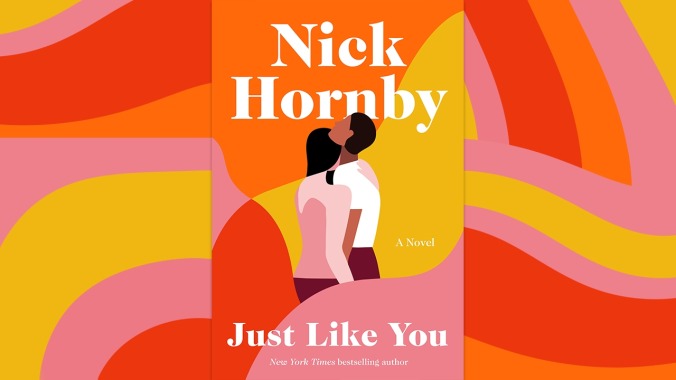Differences draw people together in Nick Hornby’s hopeful Just Like You

Nick Hornby has strayed from autobiographical personas like High Fidelity’s Rob and About A Boy’s Will before. He channeled, for instance, a 1960s comedienne in his 2014 novel Funny Girl. In his latest novel, Just Like You, he inhabits the perspectives of two Londoners—Lucy, a 42-year-old white divorcée, and Joseph, a 22-year-old Black wannabe DJ—with varying degrees of success.
Lucy is newly split from her husband due to his addiction problems, with two boys to raise practically on her own. Joseph is the shy, handsome young man working behind the counter at her local butcher’s. When Lucy impulsively asks him to babysit for her, their eventual connection is made via a series of long looks and flirtatious texts. Setting the book in 2016, Hornby uses the pair as an allegory for the United Kingdom’s conflict over the Brexit vote. The title is telling: If Lucy and Joseph can cross boundaries of age, race, and class to come together, why can’t the rest of the country? Most of us all want similar things in life, Just Like You, points out: a job we like, a nice home, and possibly someone to share it with. So why are so many of us on opposite sides?
Not much happens in Just Like You, as the warmth in Lucy and Joseph’s relationship helps them navigate potential but mostly drama-free romantic pitfalls, even though neither of them initially have high hopes for how long it might last. Their dissimilarities are a draw for the other, especially for Joseph, as he’s intrigued by English teacher Lucy’s perfect grammar, even in texts: “Why using punctuation in a text was sexy, he couldn’t say, but he found himself wondering what it would be like to sleep with someone like that.” Joseph also jolts Lucy out of the familiar, as she finds the blind dates her friends had been setting her up on boring compared to the thrills that her younger suitor provides.
Meanwhile, the Brexit vote looms large. As a progressive, Lucy is going to vote to remain in the EU, but Joseph’s working-class background opens him up to other points of view: like his father’s, who’s convinced that leaving the EU will result in more work and higher wages for him. Joseph’s indecision horrifies Lucy’s friends when he reveals his feelings at a dinner party: “This was the first time during the evening that he’d felt different from them. There were the five of them, and then there was him, and just the presumption that he might have voted the other way was enough to separate him.”
The couple has other differences, of course. Lucy thinks of herself as a nice liberal, but she’s unaware of just how many preconceived notions about race are woven into her psyche. When a neighbor calls the cops on Joseph for being on her doorstep at 10 p.m., she is irate, while Joseph accepts the incident as yet another in a long line of grievances. Later, Lucy impulsively invites him and a friend to join her at a summer house, not realizing that it’s an opportunity that likely wouldn’t be open to them otherwise.
Outside of the Brexit vote, most of the events in Just Like You are rather low-key, but the charm of Hornby’s main characters carry the book through the potential flatness of its middle pages. Unfortunately, Hornby occasionally falls into clichés in his dialogue, as when Lucy frets that when Joseph is 50, she’ll be 70, or in Joseph’s embarrassment over the way Lucy dances to his music. Besides their physical bond, which Hornby identifies but never elaborates on, Lucy and Joseph have other things in common: a love for The Sopranos, for example, but more importantly, an innate sense of compassion. For all the couple’s fears, Lucy’s kids are unfazed by the relationship, as are Joseph’s friends. Just Like You maintains that constricting societal borders, political and otherwise, can be knocked down by honest, human connection—maybe an idealized notion, but one that makes for a hopeful, compassionate read.